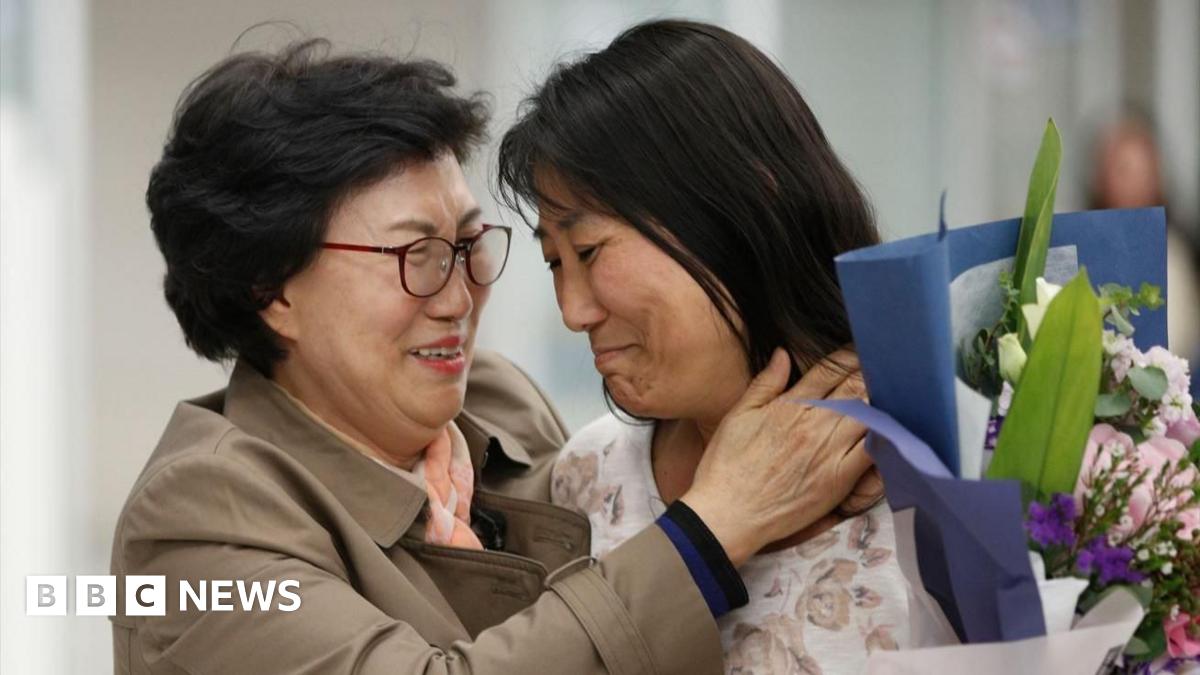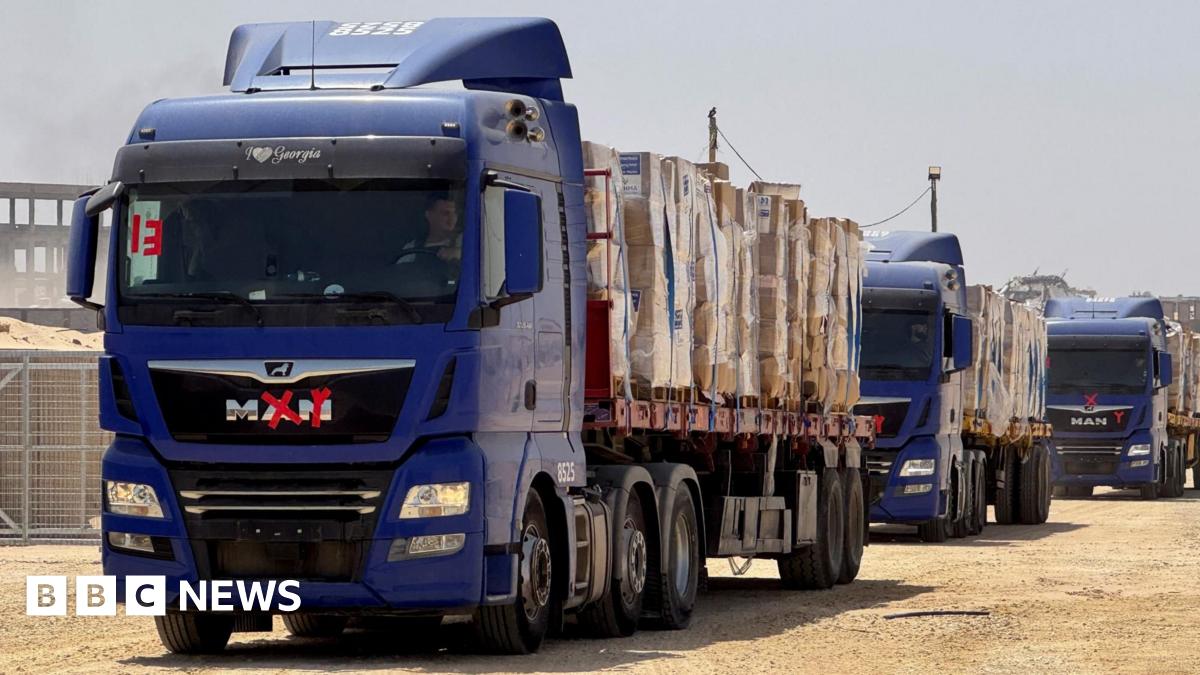The Legacy Of Adoption: Understanding South Korea's Overseas Placement Practices

Welcome to your ultimate source for breaking news, trending updates, and in-depth stories from around the world. Whether it's politics, technology, entertainment, sports, or lifestyle, we bring you real-time updates that keep you informed and ahead of the curve.
Our team works tirelessly to ensure you never miss a moment. From the latest developments in global events to the most talked-about topics on social media, our news platform is designed to deliver accurate and timely information, all in one place.
Stay in the know and join thousands of readers who trust us for reliable, up-to-date content. Explore our expertly curated articles and dive deeper into the stories that matter to you. Visit Best Website now and be part of the conversation. Don't miss out on the headlines that shape our world!
Table of Contents
The Legacy of Adoption: Understanding South Korea's Overseas Placement Practices
A complex history of adoption leaves a lasting impact on individuals and nations.
South Korea's history of international adoption is a multifaceted and often emotionally charged topic. For decades, thousands of Korean children found new homes abroad, a practice that has left an indelible mark on both those adopted and their birth country. Understanding this legacy requires examining the historical, social, and ethical complexities involved in these overseas placements.
The Rise of International Adoption from South Korea:
The surge in international adoptions from South Korea began in the aftermath of the Korean War (1950-1953). A confluence of factors fueled this trend:
- Social stigma surrounding unmarried mothers: In a deeply conservative society, single mothers faced immense social pressure, often leading them to relinquish their children for adoption.
- Economic hardship: Poverty and limited resources contributed to the decision to place children in homes where they might have better opportunities.
- Western demand: A high demand for adoptable children in Western countries created a system that facilitated international placements.
These factors combined to create a significant flow of Korean children to adoptive families primarily in North America and Europe. While many adoptees found loving and supportive homes, the experience also raised critical ethical and social questions.
Ethical Considerations and the Search for Identity:
The speed and relative lack of transparency in the adoption process during this period are now subject to intense scrutiny. Many adoptees have struggled with:
- Identity formation: Growing up separated from their birth families and cultural heritage has led to a profound sense of loss and a search for identity in many adopted individuals. This is further complicated by limited access to their birth records.
- Trauma and loss: The separation from birth parents can be a source of significant emotional trauma, even if the adoptive family provides a loving home.
- Cultural disconnect: Navigating a new culture and language while grappling with a sense of displacement can be incredibly challenging.
Modern Reforms and Ongoing Efforts:
In recent years, South Korea has undertaken significant reforms to address these issues. Increased transparency, access to birth records, and support networks for adoptees are crucial steps towards acknowledging and rectifying past practices. However, challenges remain:
- Reunification efforts: While some adoptees have successfully reunited with their birth families, the process can be fraught with difficulties and emotional complexities.
- Addressing historical trauma: Acknowledging and addressing the collective trauma experienced by adoptees and their birth families is a vital step towards healing.
- Promoting cultural understanding: Education and awareness about South Korea's adoption history are essential to fostering empathy and understanding.
Looking Forward:
The legacy of adoption from South Korea is a complex and ongoing story. While the sheer number of international adoptions highlights a significant historical event, the lasting impact on individuals and families requires ongoing discussion and support. The ongoing search for identity, the healing of historical trauma, and the building of cross-cultural understanding are crucial for shaping a more positive future. Organizations dedicated to supporting Korean adoptees and their families play a critical role in this ongoing process. Their work underscores the need for continued dialogue and reflection on the implications of this chapter in South Korean history. For further information, explore resources from organizations dedicated to Korean adoption support.

Thank you for visiting our website, your trusted source for the latest updates and in-depth coverage on The Legacy Of Adoption: Understanding South Korea's Overseas Placement Practices. We're committed to keeping you informed with timely and accurate information to meet your curiosity and needs.
If you have any questions, suggestions, or feedback, we'd love to hear from you. Your insights are valuable to us and help us improve to serve you better. Feel free to reach out through our contact page.
Don't forget to bookmark our website and check back regularly for the latest headlines and trending topics. See you next time, and thank you for being part of our growing community!
Featured Posts
-
 Phillies Late Game Heroics Extend Winning Streak A Wild Comeback
May 26, 2025
Phillies Late Game Heroics Extend Winning Streak A Wild Comeback
May 26, 2025 -
 Action On Abandoned Housing New Rules For Developers And Unfinished Sites
May 26, 2025
Action On Abandoned Housing New Rules For Developers And Unfinished Sites
May 26, 2025 -
 Harmonogram Roland Garros Znamy Juz Godzine Meczu Igi Swiatek
May 26, 2025
Harmonogram Roland Garros Znamy Juz Godzine Meczu Igi Swiatek
May 26, 2025 -
 U S Tourism Decline 23 Billion Gdp Loss And 230 000 Jobs At Risk
May 26, 2025
U S Tourism Decline 23 Billion Gdp Loss And 230 000 Jobs At Risk
May 26, 2025 -
 Cornell And Maryland Face Off In Thrilling Ncaa Mens Lacrosse Championship
May 26, 2025
Cornell And Maryland Face Off In Thrilling Ncaa Mens Lacrosse Championship
May 26, 2025
Latest Posts
-
 Surprise Nba Trade Teams Most Likely To Target Giannis Antetokounmpo
May 28, 2025
Surprise Nba Trade Teams Most Likely To Target Giannis Antetokounmpo
May 28, 2025 -
 Alexandra Daddario Stuns In Sheer Lace At Dior Cruise Collection
May 28, 2025
Alexandra Daddario Stuns In Sheer Lace At Dior Cruise Collection
May 28, 2025 -
 New Us Funded Organization Commences Aid Delivery In Gaza Strip
May 28, 2025
New Us Funded Organization Commences Aid Delivery In Gaza Strip
May 28, 2025 -
 Nih Town Hall Disrupted By Staff Walkout Over Research Cuts And Ideology
May 28, 2025
Nih Town Hall Disrupted By Staff Walkout Over Research Cuts And Ideology
May 28, 2025 -
 Trumps Fury At Harvard Is It Political Theater Or A Cover For Financial Misconduct
May 28, 2025
Trumps Fury At Harvard Is It Political Theater Or A Cover For Financial Misconduct
May 28, 2025
